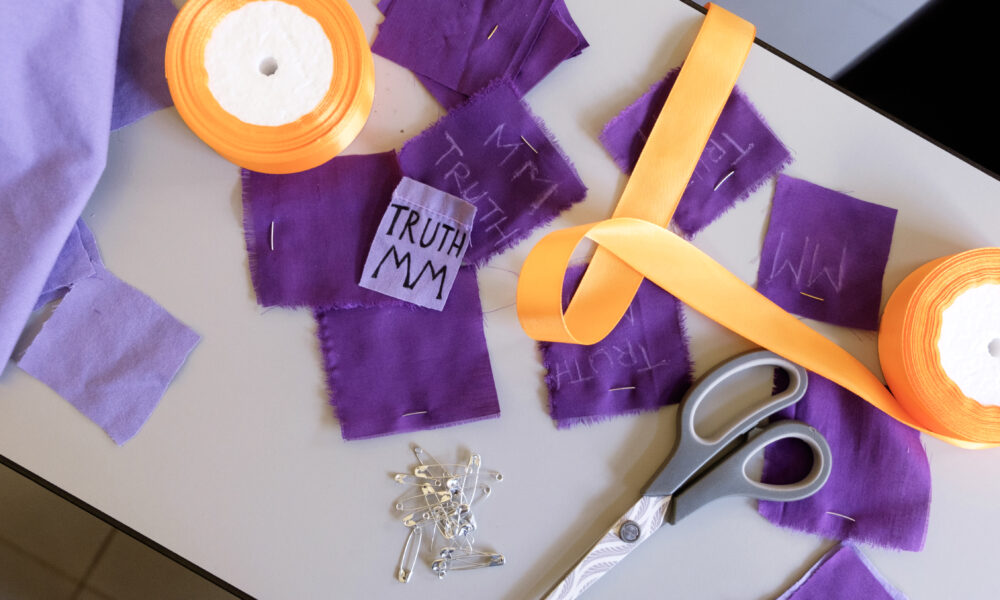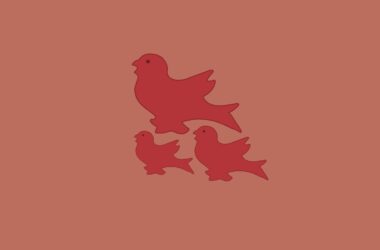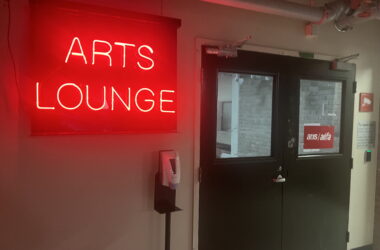Content Warning: Mentions of death and abuse
On Nov. 15, the Anthropology Students’ Association (ASA)—in partnership with the Nursing Undergraduate Society (NUS), Divest McGill, the Arts Undergraduate Society, and Take Back Tekanontak—hosted a “Crafting Solidarity” event in support of the Kanien’kehá:ka Kahnistensera (Mohawk Mothers).
The Mothers are currently engaged in an investigation into McGill’s New Vic Project site over potential unmarked Indigenous graves. They last appeared in court on Oct. 27 to urge transparency from the defendants—including McGill, the Société québécoise des infrastructures (SQI), the Royal Victoria Hospital (RVH), the City of Montreal, and the Attorney General of Canada—and discuss the disbandment of the court-appointed archaeological panel, which provides recommendations that bind all parties, as per the settlement agreement. Archaeological work and construction have continued to take place on the New Vic site against the Mothers’ wishes. Justice Gregory Moore announced his ruling on Nov. 20, calling for the reinstatement of the archaeological panel.
Attendees of the event, held in room 260 of the Arts Building from noon to 3 p.m., cut orange ribbons and crafted purple squares inscribed with the phrase “Truth MM” to distribute around campus. Naomi Pastrana Mankovitz, U3 Nursing, Senator for the NUS, and an organizer of the event, explained that the crafting event was a follow up to the ASA’s Mohawk Mothers teach-in held on Oct. 25. According to Mankovitz, students who attended the teach-in expressed a need for more accessible ways to show support for the Mothers.
“One of the ideas that came up at that event was just making the issue visible to the university. So, [we are] creating art, and pins, and ribbons,” Mankovitz said in an interview with The Tribune. “Having a space to come together and do that art, eat, and meet other people that are interested in supporting [the Mothers], it’s quite a simple activity to plan, and there seemed to be a lot of interest.”
Rajendra Kapila Basdeo of the campaign Decolonial Solidarity hosted a brief tour of the New Vic site for the last hour of the event, leading a small group of students to the site of the Allan Memorial Institute—a research and psychiatric centre operated by RVH. The Institute currently faces a class-action lawsuit, as it was one of 89 institutions that were CIA-funded for MKUltra experiments—unconsented psychological brainwashing experiments of Indigenous peoples and others.
One of the attendees of the crafting workshop, Sage Duquette, 2L, shared that he believes that McGill’s has misled students in its communications regarding the investigation. Duquette specifically referred to the Provost and Vice Principal (Academic) Christopher Manfredi’s Oct. 10 email, which stated, “No evidence has been found to substantiate the presence of unmarked graves.”
“I think that that’s a gross misrepresentation. [It’s not that] there’s conclusive evidence that there are graves, but you don’t need to have conclusive evidence to have evidence,” Duquette said. “There are things to suggest [the possible presence of graves] such as the historic human remains detection dogs. There is evidence. There’s not conclusive evidence, but there is evidence. So, to claim that there’s no evidence is misleading and harmful.”
Mathis Lehoux, U4 Arts, shared a similar frustration with the McGill administration, particularly when it comes to reconciliation with Indigenous peoples.
“Whenever we see McGill releasing some information to the community, you just know from the get-go that it’s bullshit,” Lehoux said in an interview with The Tribune. “To see the institution that we put money in hide the truth and manipulate a facade of collaboration with Indigenous peoples […] to protect their interests is really frustrating.”
Duquette further expressed that he felt McGill has had a “cynical” approach to the investigation and its public relations campaign, asserting that McGill’s continuous obstruction of justice may point to guilt.
“It all really seems to me to be at the detriment of guilt, because if there actually aren’t any human remains there, then surely that would be good to prove,” Duquette said. “You would want to prove that through a thorough process, and you would want the Mothers on board recognizing that that is the conclusion.”
McGill could not be reached for a comment in time for publication.
A previous version of this article stated that Justice Gregory Moore was going to announce his ruling on Dec. 1. In fact, Justice Moore released his ruling on Nov. 20. The Tribune regrets this error.








